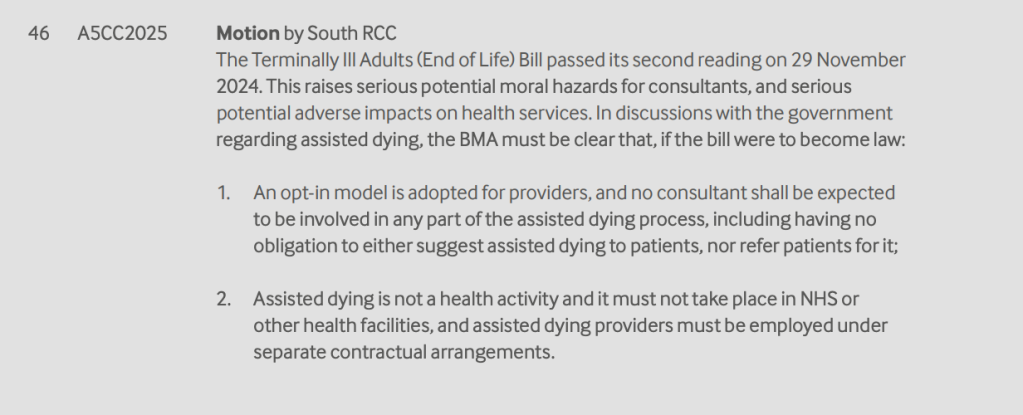As the Assisted Dying Bill continues to make its unceremonious way through parliament, various medical organisations are making themselves heard. The British Medical Association has featured throughout the public debate, so Mr S was struck by one of the motions passed at its annual consultants’ conference last week. Here, senior doctors vote upon motions relating to issues that either impact or are likely to impact health services in the UK.
Motion 46 was proposed by the South Regional consultants committee and argued that Kim Leadbeater’s bill raises ‘serious potential moral hazards for consultants, and serious potential adverse impacts on health services.’ The two-part motion argues that, when discussing assisted dying with the government, the BMA must be clear that if the bill were to become law:
An opt-in model is adopted for providers, and no consultant shall be expected to be involved in any part of the assisted dying process, including having no obligation to either suggest assisted dying to patients, nor refer patients for it.
The second part of the motion contends too that:
Assisted dying is not a health activity and it must not take place in NHS or other health facilities, and assisted dying providers must be employed under separate contractual arrangements.
Both parts of the motion were passed by the BMA consultants conference. So, there we have it: senior NHS Consultants believe the Leadbeater Bill presents both ‘serious moral hazards to consultants’ and could have ‘serious potential adverse impacts’ on health services in the UK.
One for more enlightened members of Leadbeater’s panel to reflect on perhaps…








Comments